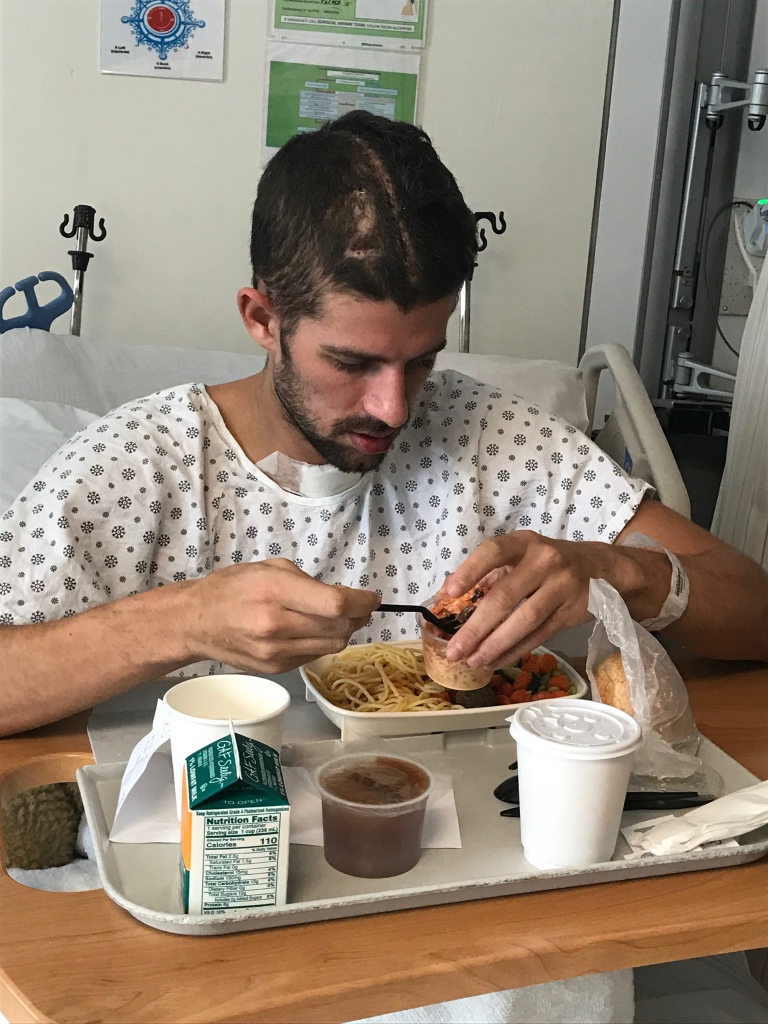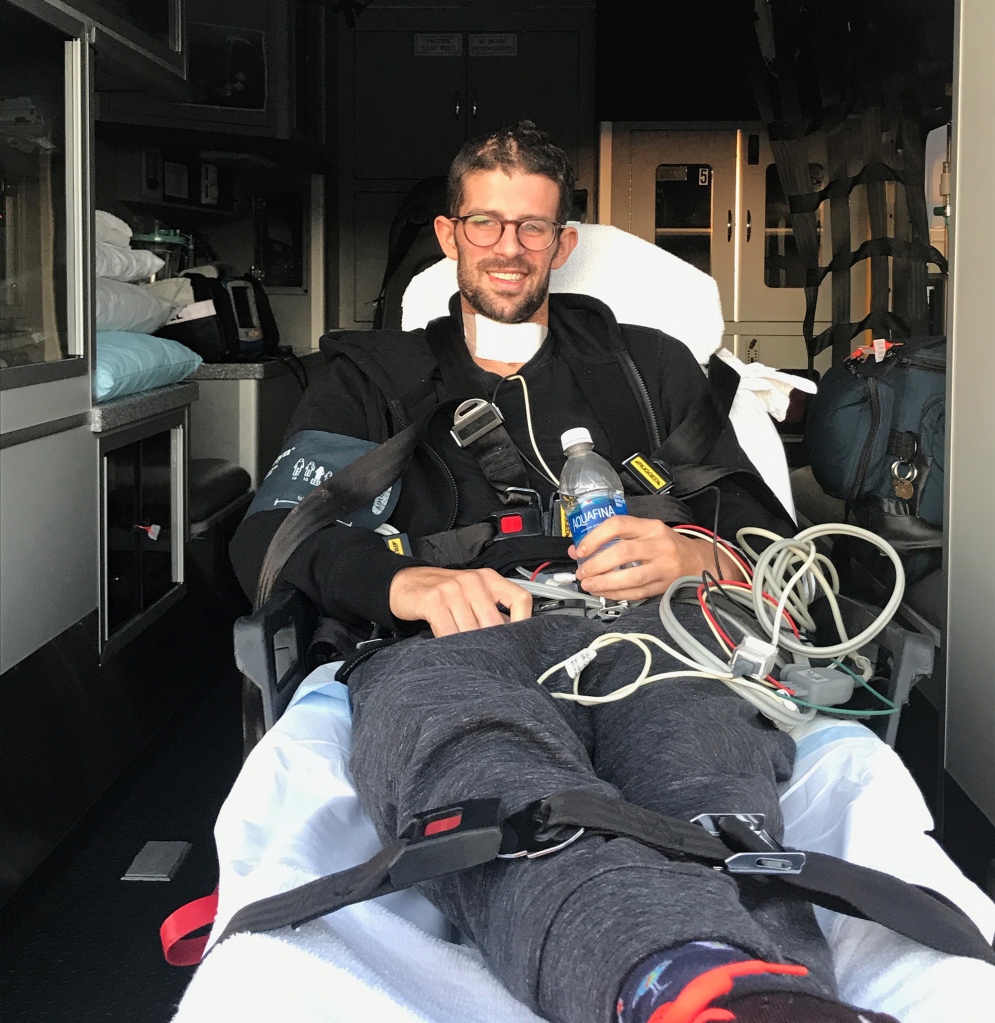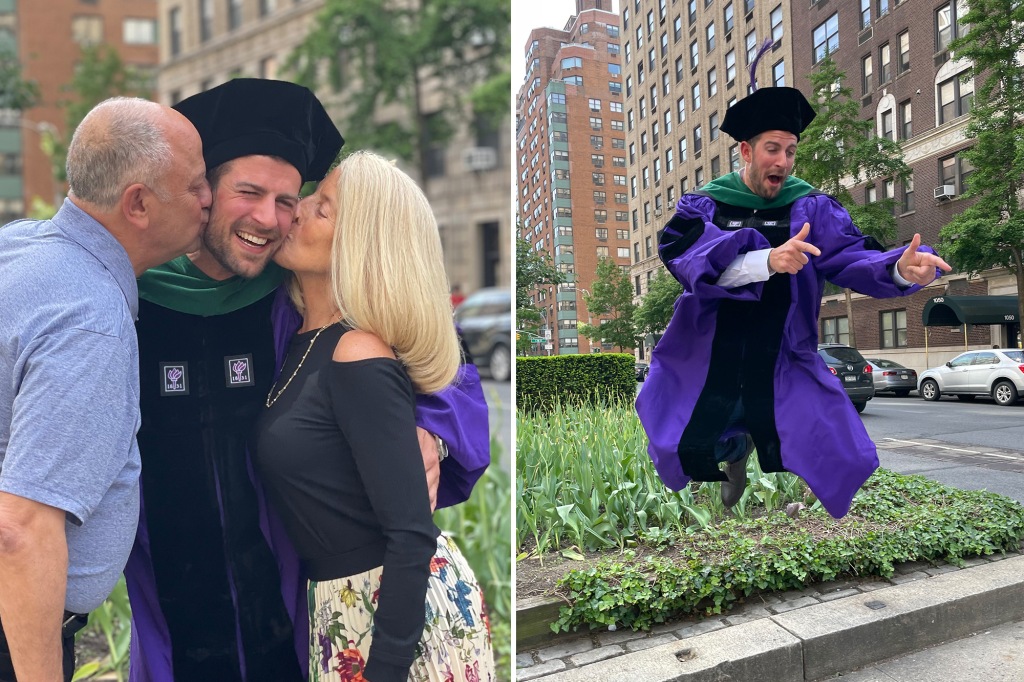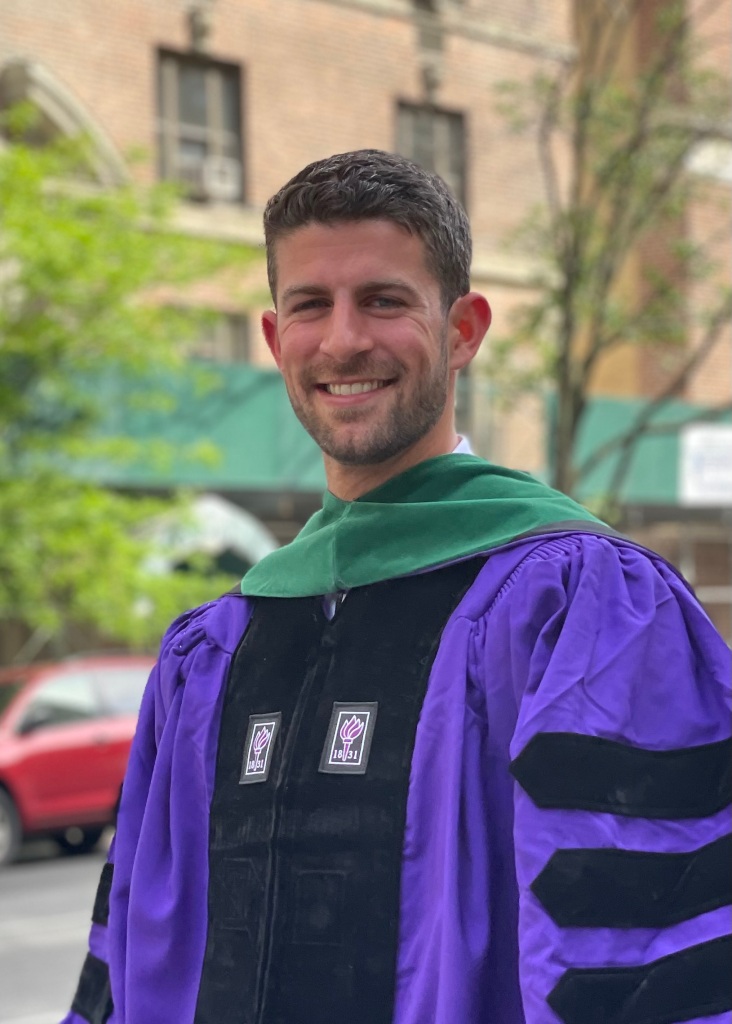Man with brain injury defies odds, graduates from med school
David Jevotovsky isn’t the same as he was before his accident — but he miraculously feels like he’s back at “100 percent.”
Just five years ago, the 28-year-old, first-year medical resident didn’t know whether he’d be able to walk or talk again — let alone run the NYC marathon, or graduate from NYU Grossman School of Medicine — following a catastrophic, life-altering collision.
In the fall of 2017, Jevotovsky rode his bike from Manhattan’s Kips Bay over to the scenic West Side Highway in Manhattan and down to Chelsea — without wearing a helmet — to meet classmates and study, ironically, for neurology.
Suddenly, the lights went out. He had been hit by a car.
“A month later, I wake up,” Jevotovsky told The Post. So began his long journey to recovery — and to pick up his medical diploma on May 18.
Following his accident, the unconscious cyclist arrived at Bellevue with an epidural hematoma — or bleeding between his skull and his brain. Left untreated, such injuries can cause lasting brain damage and death.
“It was big, and it was putting a lot of pressure on his brain,” his neurosurgeon, Dr. Dimitris Placantonakis, told The Post of the life-threatening injury. However, he added, “It could have done worse.” Cases like his often require additional surgeries, even if the initial treatment approach works.

The first thing their team did was insert a pressure monitor into Jevotovsky’s brain so they could measure the levels while the patient remained in a medically-induced coma.
Clinically speaking, Jevotovsky came to in about a week but existed in a fog.
“I myself have lost a month of my life in terms of memories because I was heavily sedated and comatose for a while,” he said. Those hazy days in ICU were filled with “delusion,” he said — then corrected himself: “a delirium.”
Perhaps the only thing he was truly delusional about at the time was his unshakeable drive to help the ailing — which occasionally manifested in funny ways.
“I very much have a vivid picture in my mind of a child being wheeled in on a hospital bed, then asking me if I would if I would donate my kidney — that he had this rare disease cause called Good Pastures,” recalled the would-be clinician, whose mind was struggling to tap into deep memory while rebuilding the neural connections he’d lost in the crash.
He recalled telling the child, “Yes,” of course. But later, when he was “a little more with it,” his lovingly-mocking father asked him, “So, where’s the scar?” Jevotovsky remembered “leaning forward and actually looking on the back towards my kidney and down where the scars would be.
“And there was obviously nothing,” he laughed.

Since then, he has reflected on his interest in the human body, which has deep roots in his heart.
Jevotovsky said his grandfather was “a huge patriarch,” and his death from leukemia when Jevotovsky was only a kindergartener both nagged and fascinated the proud grandson — and he never wavered from his goal of becoming a doctor.
Those plans, however, were temporarily derailed by his traumatic brain injury — for which he returned home to Rochester, New York, for inpatient rehabilitation.
“A little bit of a sense of hopelessness set in at times,” he confessed. Plus, he hated most his loss of independence.
Jevotovsky’s muscles had atrophied during his month in bed, which left him “gasping for breath” at the slightest exertion, and the impact of his brain bleed left him feeling intellectually frazzled at times.
He was forced to take a semester off at his doctors’, parents’ and school dean’s behest. Still, he was determined to keep studying on his own and did so with the help of his family and classmates, who often quizzed him on his progress.
“I have the best support system in the world. And I’m so lucky for that,” he said.
It was during that time that he ultimately decided on a career track in physical medicine and rehabilitation.
“I just did my priorities post-accident,” explained Jevotovsky, who initially thought he’d become a surgeon. “My family and friends were everything to me afterwards, as was my freedom … So that didn’t match with my ultimate goals in life moving forward.”


He advanced remarkably, proving to everyone what he was made of when he successfully ran the 2018 New York City Marathon — just one year after the accident.
‘It’s a different 100 percent. The 100 percent that I may have known prior is history. But the new David is absolutely functioning at 100 percent.’
Jevotovsky on feeling like his old self again as he returns to NYC
Though even that wasn’t without its hiccups. He recalled that he managed to make it to mile 24 near Central Park — but then started feeling “dizzy.”
“That was a frightening moment for my family,” he said. They had been watching him on the smartphone app that allows spectators to remotely track certain runners during the course. “[My] dot stopped moving and they were freaking out,” he continued, “because, you know, my dot really stopped moving just the year prior.” (He ultimately finished the course in 4 hours 19 minutes.)
Fast-forward five years and, after graduating on May 18, he had just a couple of weeks off before foundational training in internal medicine at Mount Sinai Morningside West. In a year, he’ll return to his alma mater to complete his residency at NYU Langone Rusk Rehabilitation.
“It’s a miracle in many ways,” said his neurosurgeon Placantonakis, who looks forward to keeping in touch with Jevotovsky during his upcoming residency.
“It’s something that is personally rewarding to me as a treating physician,” the doctor added. “It’s one of those inspiring stories that everybody needs to know about.”
With his unique perspective, Jevotovsky told The Post he’s more than ready to start treating patients in physical rehabilitation, insisting there’s nothing holding him back.
He’s also been asked by many if he feels back to his old self — at “100 percent” — especially on his return to the city.
“It’s a different 100 percent,” Jevotovsky mused. “The 100 percent that I may have known prior is history. But the new David is absolutely functioning at 100 percent.”
Read the full article Here


